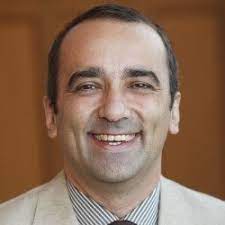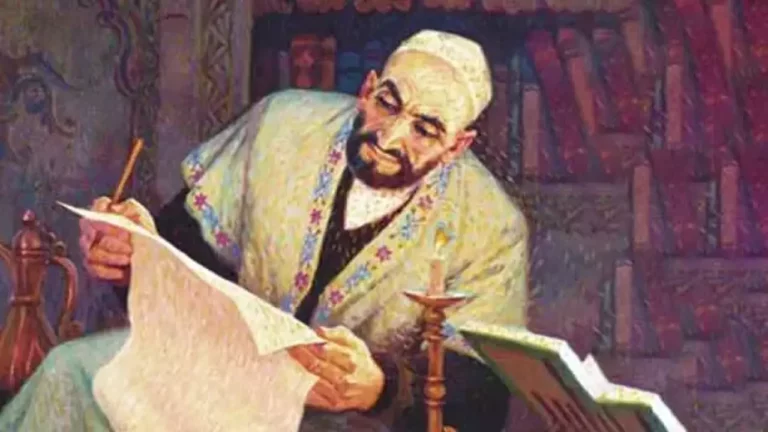Recent travellers to Türkiye may have come across large signs referring to the 750th anniversary of vuslat, but they probably couldn’t glean much about what vuslat exactly is. The term admittedly doesn’t lend itself to easy or quick translation due to its deep cultural and religious roots. Nevertheless, elucidating this concept is worthwhile, as it may contain the seeds of the next global fad.
Let’s start with the 750th anniversary: the event in question is the death of Jalāl al-Dīn Muḥammad Rūmī, popularly known as Rumi in the English-speaking world, in December 1273 AD. The year 2023 marks this 750th anniversary. Yet, vuslat does not mean death but union, or more precisely, reunion. If the term communion weren’t so steeped in Christian tradition and vuslat in Muslim culture, one could also translate vuslat as communion. The challenge in translation lies in the depth and cultural context of the term.
The next question is, what exactly are we (re-)uniting with? One answer could be God, but the God in question feels more like ‘The One’ of Plotinus. In Rumi’s poetry and philosophy, being born means a temporary departure from the seamless fabric of existence, and we yearn from birth to rejoin that web. Rejoining is always a joyous, euphoric affair. Because we constitutionally belong in that web, we crave the reunion, and when it happens, it is a blissful affair.
In his account of vuslat, Rumi is certainly part of the large body of Muslim mysticism. One of Islam’s central tenets is the belief in tawhid, the oneness of God. The Sufi schools in Islam extend the oneness of God into the oneness of all existence. Hence, there is an ever-existing urge to remove barriers toward the larger whole.
This notion of the thick interconnectedness and interdependence of all life is present in Türkiye beyond strictly religious circles. Nazım Hikmet, the popular poet who fled Türkiye for the Soviet Union, wrote, “Cabbage, automobile, plague bacillus, and star, we are all kin and kith. And oh my sun-eyed beloved, in this majestic family, we exist not by ‘Cogito, ergo sum’ but are capable of thinking..” Similarly, widely revered author Ahmet Hamdi Tanpınar, in his mid-20th-century novel Huzur, observes that the Orient discovered before anyone else – and possibly before it was utilitarian to do so – that all existence is one big whole and our wellbeing is irreversibly tied to each other. Attentive observers of Türkiye would notice manifestations of this worldview in many nooks and crannies across the country. As such, vuslat is part of the grammar of life in Türkiye.
This notion of life as deeply interconnected aligns remarkably with what Harvard anthropologist Joseph Henrich described in his recent book, The WEIRDest People in The World: How the West Became Psychologically Peculiar and Particularly Prosperous. After reviewing massive data, Henrich concludes that while today’s Westerners are highly individualistic and self-obsessed, considering themselves not as nodes in networks stretching out in space and time but as unique beings, this view is not shared by much of the world today and most people who have ever lived. In other words, Rumi, Hikmet, and Tanpınar are part of a global, albeit latent, consensus.
Take, for example, the widely used term ‘upeksha’ in South Asia. It describes the sense of equanimity one reaches as one removes all boundaries and arrives at sublime unity. This notion is very close to what vuslat entails. Ubuntu, another worldview popular in Southern Africa, describes a similar notion: “I am because you are, and you are because we are.” Ubuntu’s popularizer, the late Desmond Tutu, along with Bill Clinton, helped the term gain global recognition, even leading to its adoption as the name of a popular software language.
Nobel Laureate Elinor Ostrom, anthropologist Clifford Geertz, psychologist Michael Tomasello, historian Yuval Harari, political scientist Robert Putnam, neuroscientist Iain McGilchrist, and biologist Merlin Sheldrake are among those who argue that thinking about human beings without considering their extensive and multilayered ties to their communities and natural habitats would be a profound mistake. In that sense, vuslat is both a perennial proposition and an idea whose time has come. A path similar to Ubuntu may well await vuslat, an interesting thought as we mark St. Valentine’s Day.















